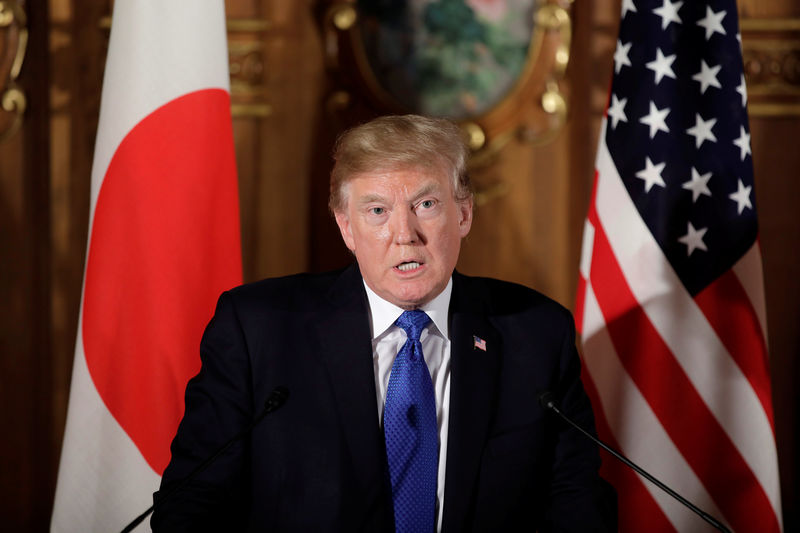By Patricia Zengerle
WASHINGTON (Reuters) - U.S. President Donald Trump asked Congress on Monday for $4 billion to support missile defense to counter the threat from North Korea, just ahead of his first visit to South Korea since taking office in January.
"This request supports additional efforts to detect, defeat, and defend against any North Korean use of ballistic missiles against the United States, its deployed forces, allies, or partners," Trump wrote in a letter to Congress.
Trump repeated his request that Congress provide $1.6 billion to build a wall on the U.S. border with Mexico. Trump's plan to construct the wall was a centerpiece of his successful presidential campaign, but it has been questioned by some of his fellow Republicans, as well as most Democrats, in Congress.
He made his request during his maiden trip to Asia as president, featuring repeated meetings with regional partners and others largely focused on how to address North Korea's nuclear and ballistic missile programs.
Trump had originally asked for $9.9 billion for the year ended Sept. 30, 2018, for missile defense, which some lawmakers had dismissed as too low.
Trump's request included $700,000 to repair damage to Navy ships after recent fatal collisions, and $1.2 billion for increased troop levels in Afghanistan and the administration's South Asia strategy in his supplemental budget request.
The budget request said the funds for South Asia would support the deployment of 3,500 more troops.
The Republican leaders of the Senate and House of Representatives Armed Services Committees, Senator John McCain and Representative Mac Thornberry, said in a joint statement that they welcomed Trump's request and looked forward "to giving it the serious consideration it deserves."
Members of the two committees are working on a final version of the annual National Defense Authorization Act, or NDAA, which sets out policy for the Pentagon.
McCain and Thornberry said the submission of the budget amendment before that work was completed means that NDAA conferees will be able to consider whether to incorporate the additional funding into the final agreement.
“This request also underscores the threat posed by the rogue North Korean regime and the urgent need to boost our missile defense capabilities to meet it," McCain and Thornberry said in a statement.
The $2.1 billion for missile defense makes up the bulk of the request. It would pay for 20 more missiles that could intercept incoming intercontinental ballistic missiles (ICBMs) launched from North Korea, a network of radars, and other equipment designed to protect the United States.
Boeing Co (N:BA) is the prime contractor for the anti-ballistic missiles, known as Ground-Based Interceptors, and Raytheon Co (N:RTN) makes the missile's "kill vehicle," which pops off the top of the defending missile above the earth's atmosphere and seeks out and destroys the attacking missile's warhead.

The request also includes money for 50 Lockheed Martin Corp-made (N:LMT) Terminal High Altitude Area Defense (THAAD) interceptors. The United States has THAAD interceptors in Guam that guard against any intermediate-range ballistic missile attacks from North Korea.